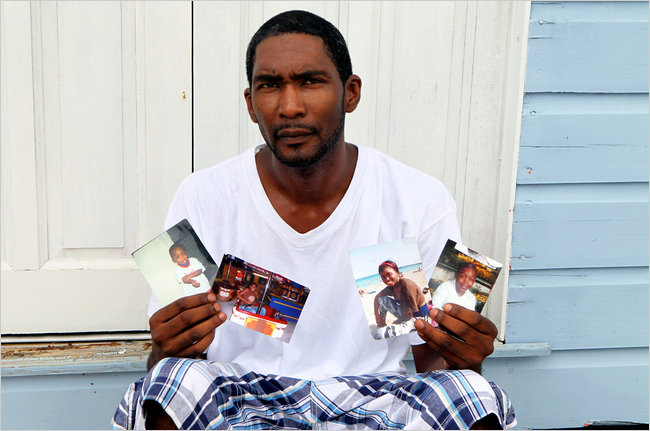| Want to send this page or a link to a friend? Click on mail at the top of this window. |
More Special Reports |
| A SPECIAL SECTION: Haiti since the January 12, 2010 Earthquake |
| Posted July 21, 2010 |
| New York Region |
|
For Those Deported, Court Rulings Come Too Late |
|
|
|
|
 |
|
|
BRITTANY SOMERSET FOR THE NEW YORK TIMES |
|
| Damon Spence with photos of his children. Mr. Spence is homeless in Jamaica after his deportation. |
|
By NINA BERSSTEIN |
| Wehaitians.com, the scholarly journal of democracy and human rights |
| More from wehaitians.com |